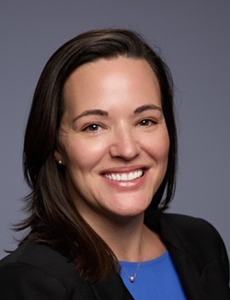Whistleblowers
Rooting Out Fraud

On May 6, Florida-based Baptist Health System Inc. was the latest in a long line of organizations to resolve a federal lawsuit accusing it of violating the False Claims Act (FCA).
Baptist Health System agreed to pay $2.5 million to resolve allegations in the case brought by a former patient referral coordinator at the health care center’s neurology practice, a lawsuit that was partially joined by the federal government.
Although health care organizations are often the focus of FCA litigation, the law, which encourages whistleblowers to expose an organization’s fraudulent practices, affects all organizations.
“Everybody thinks that it’s a health care issue, but it’s not,” said Keith Lavigne, senior vice president, professional risk, ACE USA. “The law affects any company or entity interacting with the government. … It doesn’t discriminate by industry so everyone has to adhere to this act.”
In fiscal 2013, the U.S. Department of Justice (DOJ) recovered $3.8 billion in settlements and judgments from civil cases involving fraud under the FCA. The prior fiscal year, the amount was $4.9 billion. Since January 2009, total recoveries under the FCA totaled $17 billion.
“As in previous years, the largest recoveries [in fiscal 2013] related to health care fraud, which reached $2.6 billion,” according to the DOJ. “Procurement fraud [related primarily to defense contracts] accounted for another $890 million — a record on that area.”
Other significant fraud recoveries included a $45 million settlement with Japan-based Toyo Ink S.C. Holdings Co. Ltd. and its affiliates related to allegations it misrepresented the country of origin on customs documents, and a $10 million settlement with Education Holdings Inc. (formerly The Princeton Review Inc.) related to allegations the company fabricated attendance records on tutoring funded by a federal grant.
Lavigne said the number of actions filed due to the FCA’s whistleblower provisions has escalated from about 380 cases in 1987 to 846 cases in 2013. Individuals who file civil suits are eligible to receive up to 15 percent to 30 percent of the recovery.
“It’s an amazing incentivizing of the workforce,” he said, noting the fraudulent activities most often found are inflating bills for services and fabricating procedures.
Health care organizations have been disproportionately affected by the FCA because of several government initiatives to crack down on fraud and abuse in that sector, he said.
Those initiatives include the Health Care Fraud Prevention and Enforcement Action Team, started in 2009 by the U.S. Department of Health and Human Services and the DOJ; the Medicare Fraud Strike Force, launched in 2007; and $350 million set forth as part of the Patient Protection and Affordable Care Act to fight fraud and abuse.
The ACA’s expansion of third-party audits by Recovery Audit Contractors (RAC) increases the exposures — and compliance requirements — of health care organizations, Lavigne said.
It’s a burden, a cost and a distraction, he said. And it requires organizations to develop comprehensive self-audit programs.
A compliance program should include internal monitoring and auditing, implementing and enforcing compliance and practice standards, designating ownership of the process, conducting training, and responding to reported offenses, he said.
“If they are not looking at it, they are neglecting their enterprise risk management,” Lavigne said. “If an institution doesn’t have a robust compliance program set up, it’s a real risk.”
In the Florida case, a January 2012 lawsuit filed by the whistleblower alleged the neurology practice at Baptist Health System Inc. intentionally misdiagnosed patients in order to bill Medicare for expensive treatment and medications.
The health center was accused of actively trying to cover up the alleged fraud when it became aware of it, rather than inform government authorities.
Kirk Chapman, a partner at Milberg LLP, which represented Verchetta Wells, the whistleblower, said the case is an example of how the FCA “empowers Americans to help fight fraud on the government and American taxpayers, no matter how big or small the fraud may be.”
The case involved Milberg as well as the DOJ and Middle District of Florida U.S. Attorney’s office.











